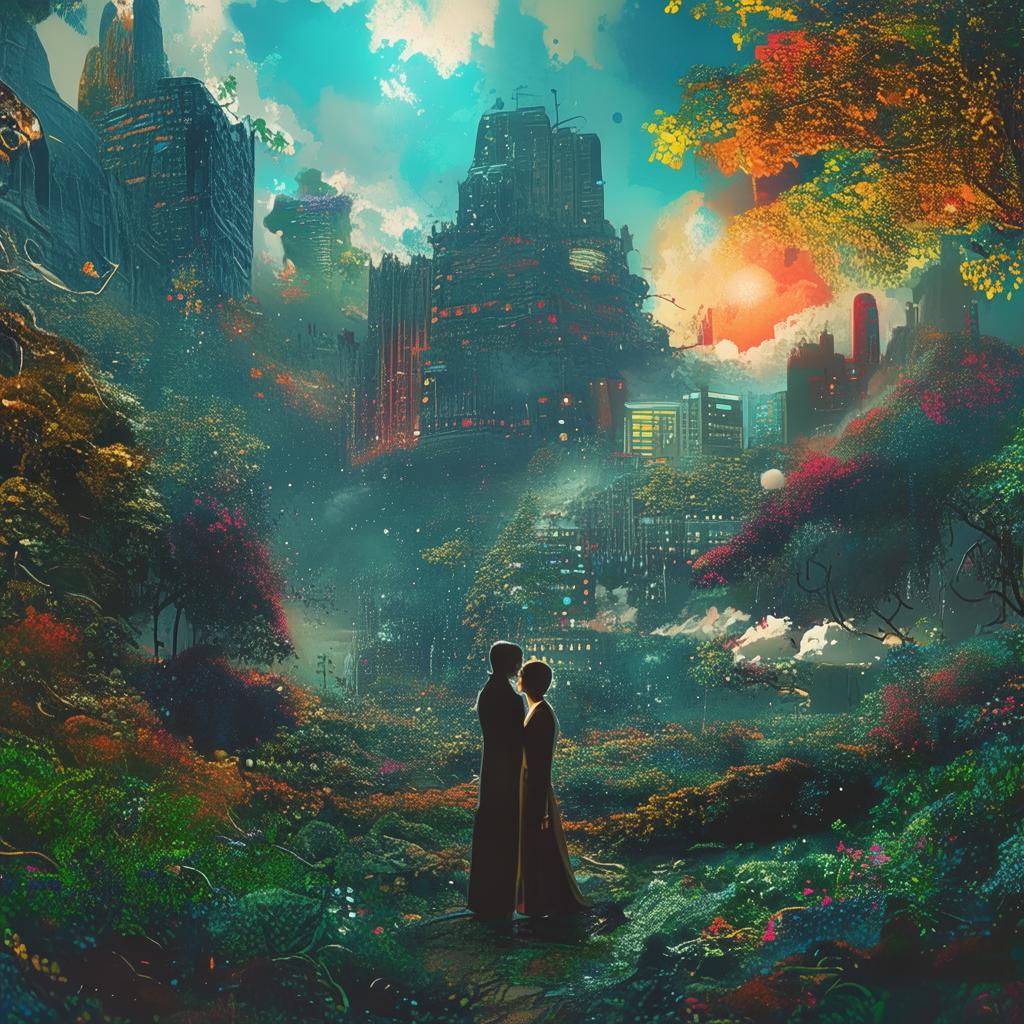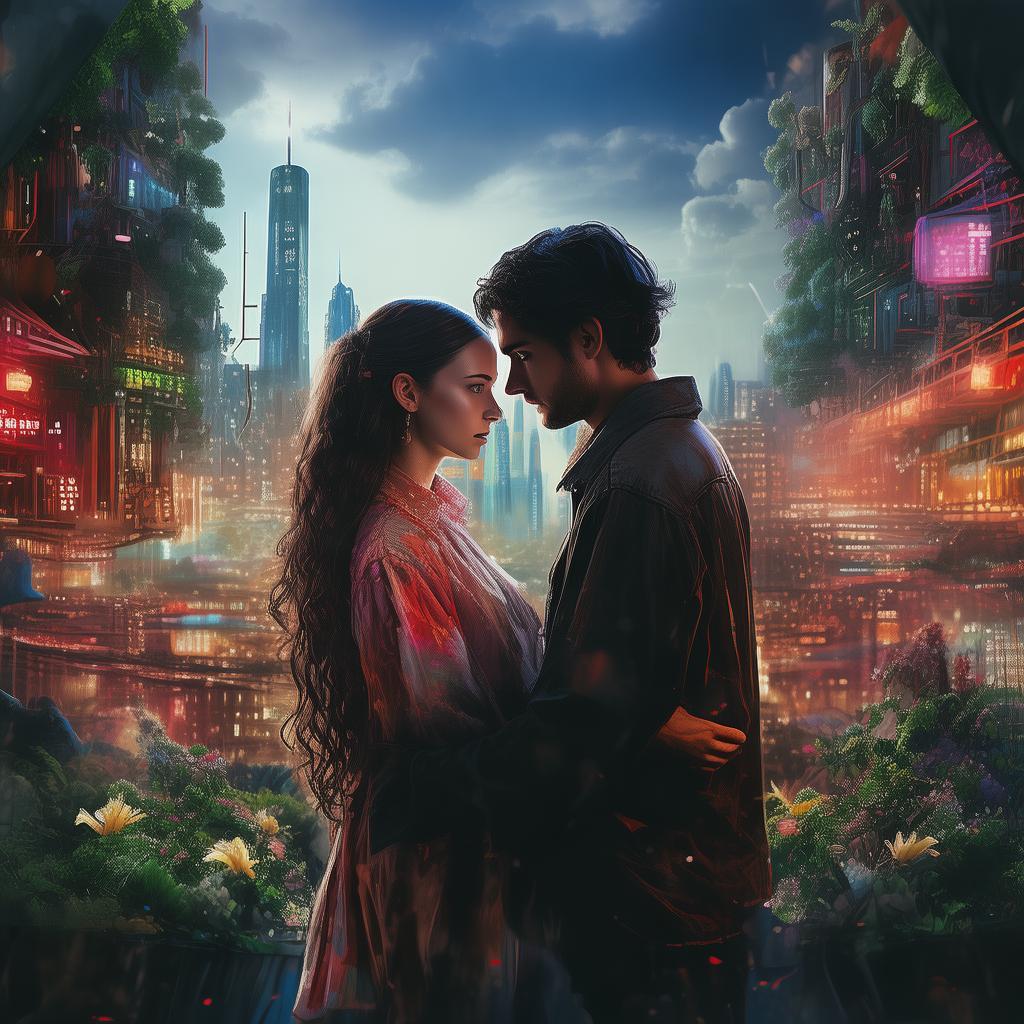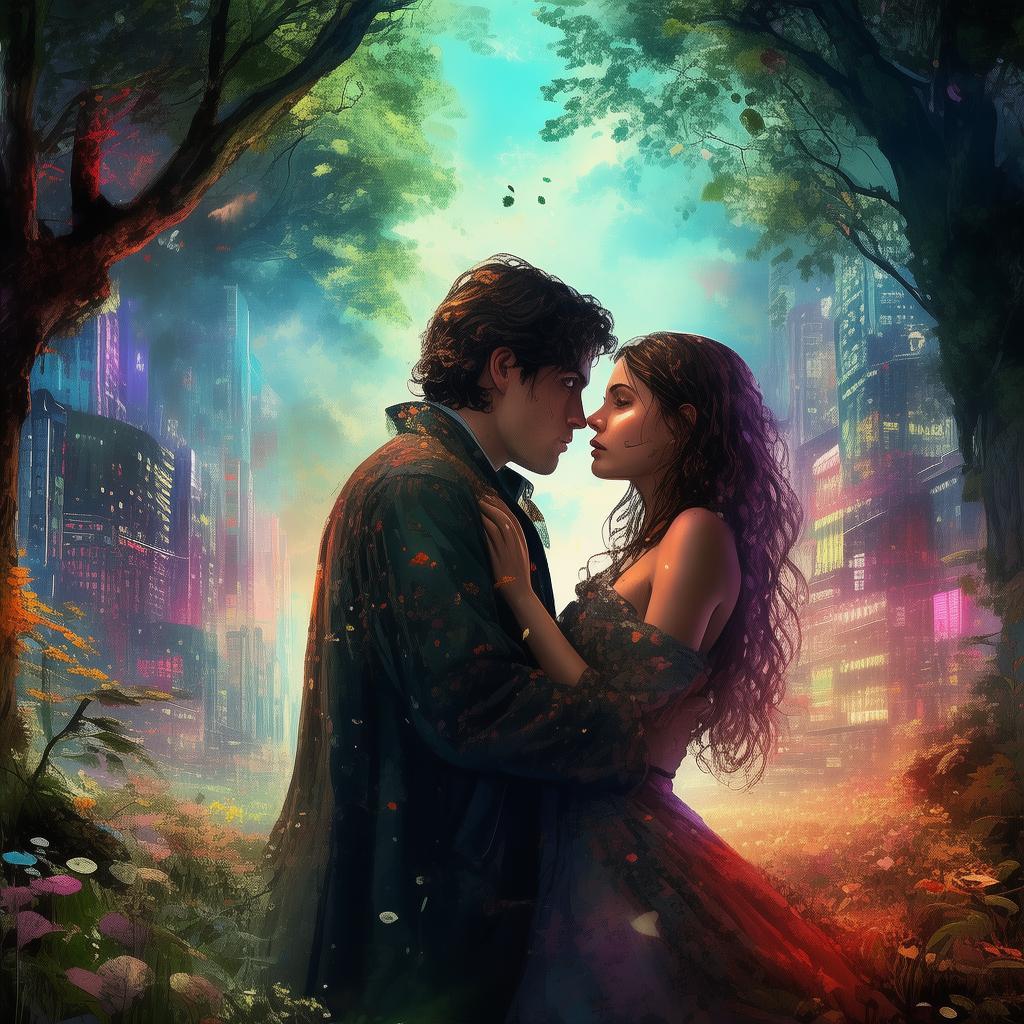The Love Symphony in the Dystopian Quadrangle
In the heart of the Dystopian Quadrangle, a place where the sky was a tapestry of grey and the ground was a patchwork of concrete, two souls were destined to weave a tapestry of love amidst the chaos. The quadrangle was a place where the four corners of the world were controlled by four distinct powers, each vying for dominance and each enforcing its own brand of tyranny.
Amara, a virtuoso violinist, lived in the Music Quadrant, a place where art was the currency and love was forbidden. She was a beacon of light in a world that thrived on darkness, her melodies a whisper of hope in the ears of the oppressed. Kael, a poet, resided in the Words Quadrant, a realm where words were weapons and silence was a luxury. His verses could inspire or destroy, and his heart was a battlefield where love and fear clashed.
The symphony of their hearts began in the shadows, where whispers of forbidden love were exchanged. "Amara," Kael would write in his journals, "your melodies are the only music that can calm the storm in my soul." And she, in return, would play his poems on her violin, the notes resonating with the truth of his words.
But their love was not to be. The quadrangles were at war, and the Music Quadrant and the Words Quadrant were at odds. The rulers of the Music Quadrant, the Conductor, and the rulers of the Words Quadrant, the Narrator, were arch enemies, and their people were mere pawns in their power games.
One fateful night, Amara and Kael met at the border between their quadrants. "Kael," she whispered, her voice trembling with the weight of their forbidden love, "we must escape. We must find a way to be together."

Kael nodded, his eyes filled with determination. "I will write a poem that will reach your heart, and you will play a melody that will touch mine. Together, we will break the chains that bind us."
As the night deepened, they exchanged words and notes, their love a silent symphony that defied the world around them. But the Conductor and the Narrator were not blind to their forbidden love. They sent their enforcers to hunt them down, to crush their love beneath the boots of their soldiers.
Amara and Kael were forced to hide, to flee, to live in constant fear. But their love was a fire that could not be extinguished. In the midst of their hiding, they discovered a secret: the Conductor and the Narrator were not as immutable as they seemed. They were once lovers, separated by duty and power.
In a twist of fate, the Conductor, moved by the power of Amara's music and the beauty of Kael's words, chose to defect. "I cannot stand by and watch you suffer," he said to Amara. "I will help you."
The Narrator, realizing the depth of her own loneliness, agreed to join the Conductor. "I have loved you for too long," she confessed to Kael. "I will help you."
Together, the Conductor, the Narrator, Amara, and Kael formed a plan to unite the quadrangles and end the war. They would use the power of music and words to inspire their people to rise up against their oppressors.
The day of the revolution arrived. Amara played her violin, her melodies soaring over the crowd, inspiring them to stand up for their rights. Kael's words echoed through the air, stirring the hearts of the people. The Conductor and the Narrator, now allies, addressed the crowd, their voices united in a call for peace.
As the people of the Dystopian Quadrangle united, the walls of division crumbled, and the symphony of love and freedom began to play. Amara and Kael, standing together at the forefront, were the embodiment of the change that had come.
In the end, the Dystopian Quadrangle was no more. It had been replaced by a new world, a world where love could flourish, and where the power of music and words could be used to build rather than to destroy.
Amara and Kael, now free to love openly, continued to weave their symphony, their melodies and words a testament to the power of love and the resilience of the human spirit. And in the heart of the new world, their love was the most beautiful note of all.
✨ Original Statement ✨
All articles published on this website (including but not limited to text, images, videos, and other content) are original or authorized for reposting and are protected by relevant laws. Without the explicit written permission of this website, no individual or organization may copy, modify, repost, or use the content for commercial purposes.
If you need to quote or cooperate, please contact this site for authorization. We reserve the right to pursue legal responsibility for any unauthorized use.
Hereby declared.









